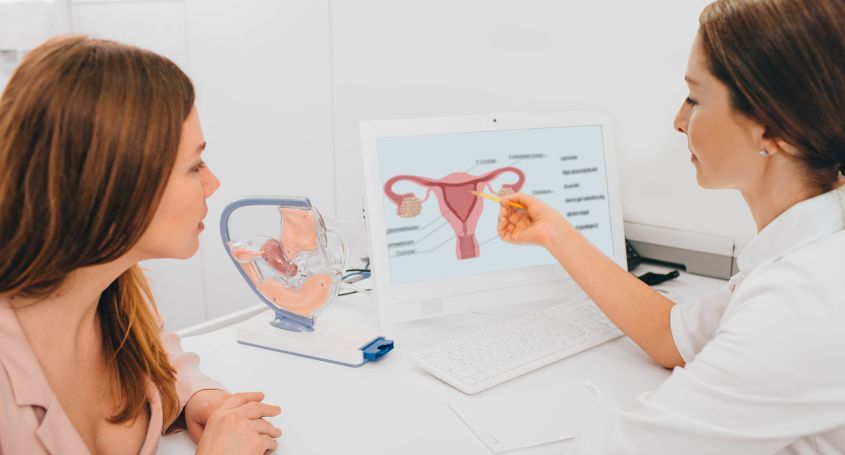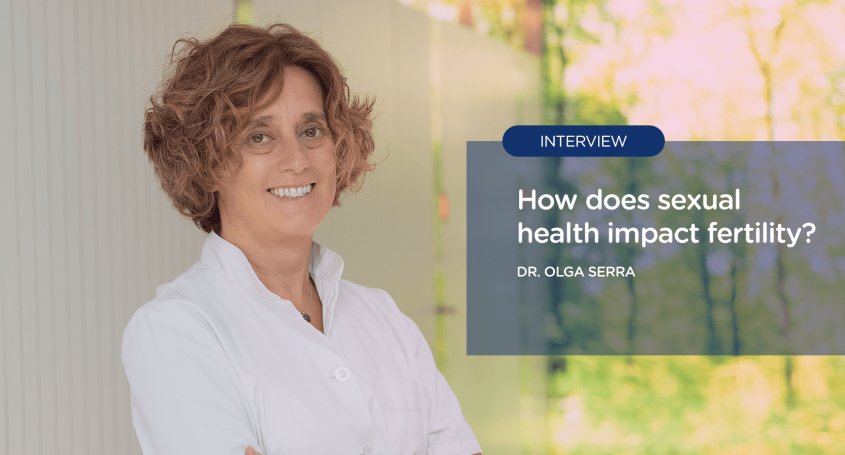The endometrium is the tissue that covers the inner layer of the uterus. Both its composition and its thickness vary throughout the menstrual cycle in response to hormonal changes. A healthy and receptive endometrium is essential for embryo implantation and the maintenance of pregnancy.
There are various pathologies that can disrupt the structure and functionality of the endometrium and, therefore, affect fertility. Below, we explain some of the main endometrial conditions that are linked to reproductive problems:
Endometrial polyps
Endometrial polyps are benign growths of the basal layer of the endometrium, that is, the layer that is not detached with menstruation. Their size and number can vary. Although the exact cause is unknown, their growth is usually associated with high levels of oestrogen.
It is estimated that up to 50% of women with endometrial polyps are asymptomatic, so it diagnostic can be delayed.
Polyps can hinder embryo implantation. For this reason, surgical removal is recommended in women with symptoms or with fertility problems.
Uterine fibroids
Uterine fibroids are tumours, normally benign, that develop in the muscular layer of the uterus (myometrium). It is estimated that up to 20% of women may develop fibroids during their lifetime.
Although most of fibroids do not affect fertility, some can alter the shape of the uterine cavity and hinder embryo implantation, as well as increasing the risk of miscarriage.
In women with infertility associated with fibroids, surgical removal is recommended to improve the chances of pregnancy.
Uterine adenomyosis
Uterine adenomyosis is a condition in which endometrial tissue invades the myometrium. This can lead to an increase in uterine volume, chronic inflammation, and alterations in uterine contractions, which can affect embryo implantation and increase the risk of miscarriage.
Treatment varies according to the severity of the symptoms and the woman's desire to have children, including hormonal options, treatment with anti-inflammatories or surgery in the most severe cases.
Endometrial hyperplasia
Endometrial hyperplasia is the excessive growth of endometrial cells, generally caused by a hormonal imbalance between oestrogen and progesterone levels. If it is not treated properly, hyperplasia could progress to endometrial cancer. For this reason, early diagnosis is very important in these cases.
In women with endometrial hyperplasia who wish to become mothers, hormonal treatments are used to reduce the proliferation of the endometrium and preserve fertility. In more severe cases, or for women without reproductive desire, removal of the uterus (hysterectomy) may be necessary.
Endometrial pathologies can increase the risk of reproductive problems, as they have a significant impact on embryo implantation and the risk of miscarriage. Early diagnosis and appropriate treatment are key to improving the chances of pregnancy and achieving a full-term gestation.
Dr. Cristina Guix
Gynecologist specialized in fertility at Barcelona IVF




















